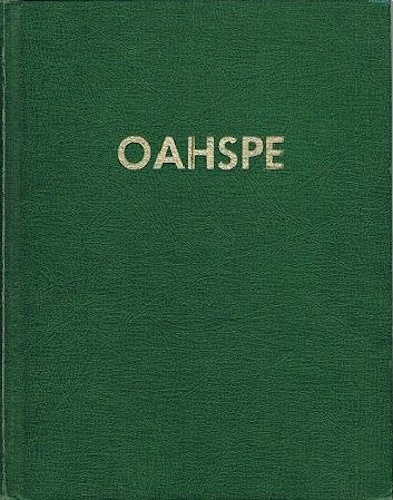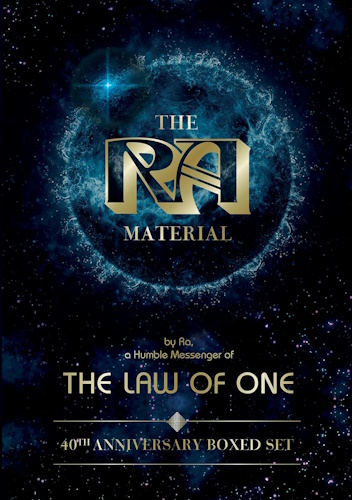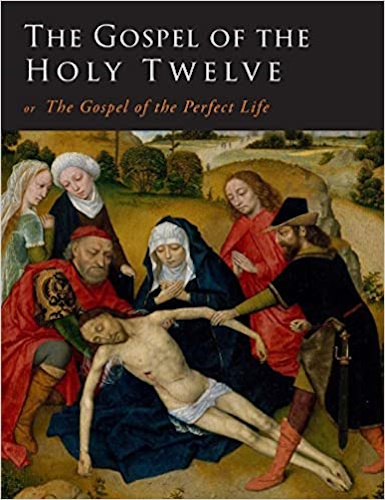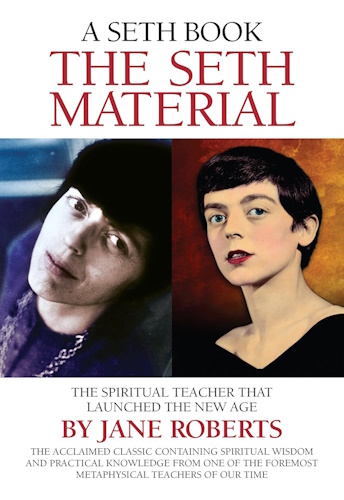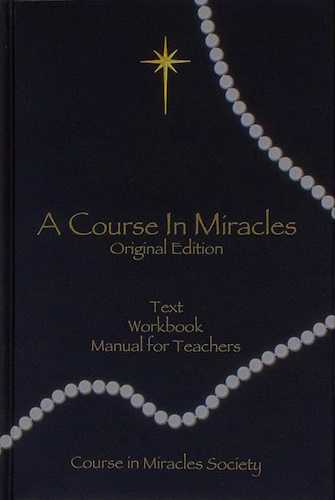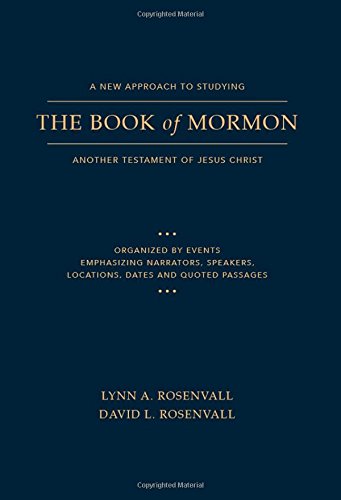
![]()
![]()
Book of God's Word
Chapter XVI
1. SO Asha, being converted, gave up all he had on earth, and went and lived with the poor, carrying the alms-bowl for one year, preaching and praying for the poor. And it came to pass that at the end of the year he had thousands of followers.
2. And he built altars for them, teaching them to worship the Creator; to restore the mark of circumcision; to be upright before men; to labor for the helpless and distressed, and to do not to any man that which they desired not to be done unto themselves.
3. And these people took the name of Zarathustrians, in contradistinction from the Parsi'e'ans. Nevertheless,
p. 209b
they were the I'huan race, and the Ghans.
4. And because of their religion, they could not own property, neither houses, nor lands, nor cattle, nor beasts of burden. Many of them gave themselves into servitude to the Parsi'e'ans, but many of them lived on the contributions brought by converts who had had great possessions.
5. Now it so turned out, that when Asha abdicated the throne, there were many aspirants to his place, and the COUNCIL OF THE SUN was puzzled to know whom to select, that peace might remain in Oas; but they finally made Hi'ya'tseing king, because he was a great warrior, having bestowed to the city's walls and gates more than ten thousand skulls, from the refractory tribes adjacent.
6. Hi'ya'tseing assumed the titles of his predecessors, chief of which were KING OF THE SUN, KING OF KINGS, AND KING OF OAS, the central city of all the world; and sent his proclamations to the chief cities of Jaffeth and Shem and Ham, commanding earth, water and fruit to be sent to him from every place under the sun. And he stipulated certain presents that must be sent to him every year, amongst which were thousands of subjects (slaves).
7. Hi'ya'tseing was a man of great learning, and had traveled far and near, and he knew the people and the lands of the earth, and he knew the different products of the different lands, and the number of peoples in the great cities of the world, and the number of warriors belonging to the different sub-kings under him. Besides these things he knew the stars and their places, and the groups of cows, and horses, and bulls, and bears, and lions, and fishes, and serpents, even as they had been taught in the Hyartien period amongst the ancients.
8. Hi'ya'tseing said: The Fete hath made me king of all the world; hence, it is right that I am king. He said: It is evident, because Asha abdicated the throne, that man must have a religion. He said: Because I know all the rites and ceremonies of the ancients, I will give man a religion on my own account. He said: Because Asha commanded the Zarathustrian religion unto the far-off kingdoms, then are Asha and Zarathustra my enemies. He said: Let my officers arrest Asha and Zarathustra and
p. 210b
bring them before me. I will make an example of them.
9. And on the day that Asha was arrested, behold, the year of his carrying the alms-bowl was ended. Asha and Hi'ya'tseing had known each other for many years. When Asha was before the king, he said: I have nothing in all this world; why, then, hast thou arrested me? The king said: Because thou gavest away thy possessions, thou art the most dangerous of men. I have decreed thee to be put to death. Art thou prepared?
10. Asha said: Yea, O king. And yet, because of our long acquaintance, I ask of thee one boon, which is, that I may be put to death according to the Panic rites which were before the flood? And if, perchance, it be proved to thee there is a God with power to release me, and he so doeth it, then shall not thy hand be raised against me? The king said: Thy boon is granted.
11. Accordingly, a wheel of uh'ga was built and Asha was bound upon it, the king having appointed a guard to watch him till he should die. But because of the king's fear that the test might be tampered with, he caused the yogernot (jaugernot) to be set up in his private piazza, with the uh'ga facing the Gate of Lyons, so that his private attendants might also watch. (See Plate 11, page 222.)
12. Great was the wailing and crying of the people when it was known that Asha had been decreed to death. The city of Oas became as a house of mourning and madness, and it was divided against itself, some for Asha and some for the king.
13. Because Asha was old, and thus in view of the king all day, the king repented, but he had no power under the laws to set aside his own decree. And when the sun went down, the king went before Asha, saying: Behold, thou hast been six hours on the wheel, and yet thy God hath not come to release thee. This is a great torture, and I weep for thee. If thou wilt, therefore, slay thyself with a sword, I will have thee taken down?
14. Asha said: I declare unto thee, O king, I have no pain. Whether it be my madness, or whether it be the Gods favor me, what mattereth it, since I suffer not? Nor have I a right to slay myself, since I created not myself alive. Moreover, if it be the will of my Creator, Ormazd, that I die on the wheel, then it is just. If
p. 211b
it be not His will, then will He release me. Therefore, O king, I am content.
15. The king said: This indifference cometh of madness. And thy madness hath affected the City of the Sun. Have thy way, then, and die!
16. The king returned into his palace, but on the next morning he came again, making the same proposal, and receiving similar answers. And at night he came again, repeating his offer, and again being refused, determined to come no more.
17. Now on the night of the third day, Asha felt the power of I'hua'Mazda coming upon him, and he said unto the guard: Behold, this night I shall be released! See to it, therefore, as to whether the thongs are well fastened. For, if it so turn out that the Father release me, then will ye stand before the king accused of conniving at my release. Accordingly, the guard re-examined the fastenings, and sent word to the king of what Asha had said. And the king replied: Nay, if he be released, then will I know of a truth there is a God; neither shall one man of my guardsmen stand accused.
18. This they told to Asha, and Asha said: I say unto you, not only one shall stand accused, but all of you. And there were of them one hundred, being two watches of fifty each; but it being the change of watch, they all heard, and they laughed in derision.
19. And behold, in that same moment of time, the thongs fell off, and I'hua'Mazda delivered Asha down from the uh'ga. And the spirit of I'hua'Mazda was in Asha, nor was Asha himself, though knowing to the things done through him.
20. I'hua'Mazda said: Go ye and say to the king: Behold, Asha is delivered by the power of his God. Then the guardsmen said: It is not morning; the king sleepeth.
21. I'hua'Mazda said: I say unto you, the king sleepeth not, but is joyful in drinking wine with his courtiers. They went, then, and told the king, finding, of a truth, he slept not. And the king commanded them to bring Asha before him, which they did.
22. Hi'ya'tseing said: What profit have my guardsmen in releasing this old man? Behold, it hath been said that thou, Asha, hadst gold and silver hidden away. I know now of a truth thou hast bribed these guardsmen to
p. 212b
set thee free. For which reason, every man of these guardsmen shall be put to death, and their skulls mounted on the walls of Oas, and their skins tanned for leather. Away with them, ye marshals; bind them till the rising sun, and at that hour hew off their heads, as I have decreed.
23. And now as for thee, thou old hypocrite and destroyer of liberty! What sayest thou?
24. Asha said: According to thy promise I should now be free. There was no stipulation in thy decree that I should not bribe thy guardsmen. Behold, then, my wisdom! Have I not revealed to thee that thou canst not trust any man?
25. The king said: Thou art the wisest of men. I had hoped to hear thee say thy God released thee, and I had here twelve swordsmen to hew off thy head. But because thou hast shown me great craft, thou shalt live for a season, but only on condition that thou shalt leave Oas and never return.
26. Then spake I'hua'Mazda through Asha, saying: Thou hast decreed the guardsmen to death at sunrise! Now I declare unto thee, O king, not one of them shall die as thou hast decreed. But I, I'hua'Mazda, will deliver them. Think not that I am Asha; I am not Asha, but a spirit, the God of the I'huans. Neither will I spirit away thy guardsmen by a miracle, but by natural means, and will I show thee that I am mightier than all kings.
27. The king said: It cannot be that there are Gods or spirits. Is man's judgment nothing? These things were suited to the dark ages. They affrighted men to justice, and so far served a purpose. But in this enlightened age man shall know justice and wisdom of himself.
28. Whilst the king yet spake, I'hua'Mazda caused the attending spirits to assume mortal form by the curtains of Arizzi, back of the king, and they made a noise, so that the king turned to look, and lo and behold, he saw them. He feared, not knowing but they were evil persons concealed, and he said: Robbers! murders! And he drew his sword and thrust at them; but they vanished! He said:
29. Verily art thou a devil, O Asha! And he thrust his sword at Asha, but it fell from the handle. He said: Ye Fetes! Kill him! kill him! And
p. 213b
whilst he was thus puzzled, Asha walked forth out of the palace, nor would the king's guards lay hands on him.
-
Urantia Book, 44:0.11 - The Celestial Artisans
Never in your long ascendancy will you lose the power to recognize your associates of former existences. Always, as you ascend inward in the scale of life, will you retain the ability to recognize and fraternize with the fellow beings of your previous and lower levels of experience. Each new translation or resurrection will add one more group of spirit beings to your vision range without in the least depriving you of the ability to recognize your friends and fellows of former estates.
-
Princess Bride 1987 Wallace Shawn (Vizzini) and Mandy Patinkin (Inigo Montoya)
Vizzini: HE DIDN'T FALL? INCONCEIVABLE.
Inigo Montoya: You keep using that word. I do not think it means what you think it means. -
Urantia Book, 117:4.14 - The Finite God
And here is mystery: The more closely man approaches God through love, the greater the reality -- actuality -- of that man. The more man withdraws from God, the more nearly he approaches nonreality -- cessation of existence. When man consecrates his will to the doing of the Father's will, when man gives God all that he has, then does God make that man more than he is.
-
Urantia Book, 167:7.4 - The Talk About Angels
"And do you not remember that I said to you once before that, if you had your spiritual eyes anointed, you would then see the heavens opened and behold the angels of God ascending and descending? It is by the ministry of the angels that one world may be kept in touch with other worlds, for have I not repeatedly told you that I have other sheep not of this fold?"
-
Urantia Book, Foreword - 0:12.12 - The Trinities
But we know that there dwells within the human mind a fragment of God, and that there sojourns with the human soul the Spirit of Truth; and we further know that these spirit forces conspire to enable material man to grasp the reality of spiritual values and to comprehend the philosophy of universe meanings. But even more certainly we know that these spirits of the Divine Presence are able to assist man in the spiritual appropriation of all truth contributory to the enhancement of the ever-progressing reality of personal religious experience—God-consciousness.
-
Urantia Book, 1:4.3 - The Mystery Of God
When you are through down here, when your course has been run in temporary form on earth, when your trial trip in the flesh is finished, when the dust that composes the mortal tabernacle "returns to the earth whence it came"; then, it is revealed, the indwelling "Spirit shall return to God who gave it." There sojourns within each moral being of this planet a fragment of God, a part and parcel of divinity. It is not yet yours by right of possession, but it is designedly intended to be one with you if you survive the mortal existence.
-
Urantia Book, 1:4.1 - The Mystery Of God
And the greatest of all the unfathomable mysteries of God is the phenomenon of the divine indwelling of mortal minds. The manner in which the Universal Father sojourns with the creatures of time is the most profound of all universe mysteries; the divine presence in the mind of man is the mystery of mysteries.
-
Urantia Book, 1:4.6 - The Mystery Of God
To every spirit being and to every mortal creature in every sphere and on every world of the universe of universes, the Universal Father reveals all of his gracious and divine self that can be discerned or comprehended by such spirit beings and by such mortal creatures. God is no respecter of persons, either spiritual or material. The divine presence which any child of the universe enjoys at any given moment is limited only by the capacity of such a creature to receive and to discern the spirit actualities of the supermaterial world.
-
Urantia Book, 11:0.1 - The Eternal Isle Of Paradise
Paradise is the eternal center of the universe of universes and the abiding place of the Universal Father, the Eternal Son, the Infinite Spirit, and their divine co-ordinates and associates. This central Isle is the most gigantic organized body of cosmic reality in all the master universe. Paradise is a material sphere as well as a spiritual abode. All of the intelligent creation of the Universal Father is domiciled on material abodes; hence must the absolute controlling center also be material, literal. And again it should be reiterated that spirit things and spiritual beings are real.
-
Urantia Book, 50:6.4 - Planetary Culture
Culture presupposes quality of mind; culture cannot be enhanced unless mind is elevated. Superior intellect will seek a noble culture and find some way to attain such a goal. Inferior minds will spurn the highest culture even when presented to them ready-made.
-
Urantia Book, 54:1.6 - True And False Liberty
True liberty is the associate of genuine self-respect; false liberty is the consort of self-admiration. True liberty is the fruit of self-control; false liberty, the assumption of self-assertion. Self-control leads to altruistic service; self-admiration tends towards the exploitation of others for the selfish aggrandizement of such a mistaken individual as is willing to sacrifice righteous attainment for the sake of possessing unjust power over his fellow beings.
-
Urantia Book, 54:1.9 - True And False Liberty
How dare the self-willed creature encroach upon the rights of his fellows in the name of personal liberty when the Supreme Rulers of the universe stand back in merciful respect for these prerogatives of will and potentials of personality! No being, in the exercise of his supposed personal liberty, has a right to deprive any other being of those privileges of existence conferred by the Creators and duly respected by all their loyal associates, subordinates, and subjects.
-
Urantia Book, 54:1.8 - True And False Liberty
There is no error greater than that species of self-deception which leads intelligent beings to crave the exercise of power over other beings for the purpose of depriving these persons of their natural liberties. The golden rule of human fairness cries out against all such fraud, unfairness, selfishness, and unrighteousness.
